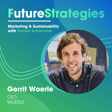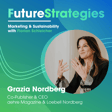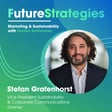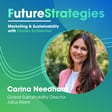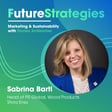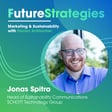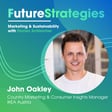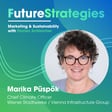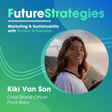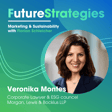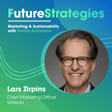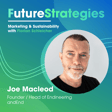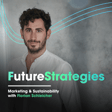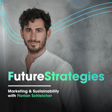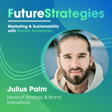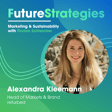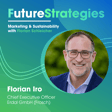
📱 "The courageous choice" - Verena Kitowski from Fairphone on sustainability as a choice in marketing
Verena Kitowski is leading the customer journey and channel marketing teams at Fairphone, a social enterprise that is leading the market for sustainable and ethical electronics. In her role she is responsible for strategies that aim to support customers in using their products longer. Before joining Fairphone in Amsterdam, she was part of the founding team of an electric car company in Sweden and has experience with early stage impact startups.
Are you curious to make your company’s marketing ready for the future? Then I have the some simple and exciting options for you:
First, this is exactly what I do for my clients - I help them build their future strategies with workshops and coaching sessions.
I also have a very simple entry offer for founders and aspiring marketing experts: The Simple & Sustainable Marketing Academy, with a ridiculously cheap entry ticket price, because I love sharing what I have learned.
And if you enjoy reading: Check out my newsletter where I write about marketing, strategies and sustainability available every two weeks in the FutureStrategies newsletter.
About Florian Schleicher: I'm a marketing strategist - over the last 15 years I've led and helped shape marketing at McDonald's, Greenpeace and Too Good To Go. Now I help forward-thinking companies take their marketing to the next level.
With FutureS, the Impact Marketing Studio, I help brands achieve their goals and sustainable growth. All without the usual hustle.
